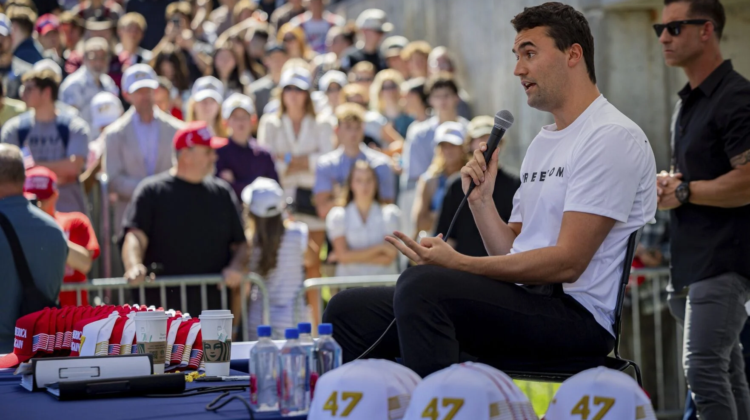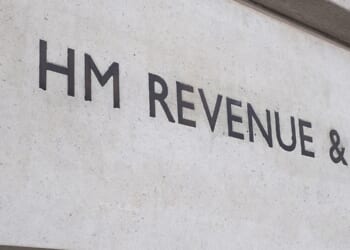
[Order Michael Finch’s new book, A Time to Stand: HERE. Prof. Jason Hill calls it “an aesthetic and political tour de force.”]
“Under the Trump Administration America is descending into the long night of fascism.” This is the mantra of professors in Connecticut and around the country who condemn the administration’s efforts in higher education to reverse the recent explosion of anti-semitism, to ensure the presentation of multiple viewpoints, and to end programs that violate the Supreme Court decision in 2023 prohibiting racial discrimination in student admissions.
To professors such as Louise Williams, president of the AAUP faculty union at the four regional campuses of the Connecticut State University system, these efforts are a violation of academic freedom and freedom of speech. In her view, they threaten nothing less than professors’ freedom to tell their students “what the evidence says is the truth and to teach the truth.” The result, she says, is as atmosphere in which “everyone is scared.”
Apart from the fact that in many academic disciplines what is true remains a matter of debate on which reasonable people may disagree, freedom of speech and academic freedom are not the same thing. Sometimes they are mutually exclusive. One instance of this is when professors opine on subjects, such as contemporary politics, that bear no relation to the subject matter of the course. Professors of mathematics cannot teach literature, and professors of literature cannot teach mathematics. So, too, should professors keep their politics to themselves. To do otherwise is to deprive students of their academic freedom.
Professors Williams notwithstanding, it is students, not professors, who have reason to fear. Students should not have to fear that disagreeing with their professors might cause their grades to suffer.
In virtually every college and university in America, there reigns today an ideological monoculture skewed to the left. At Central Connecticut State University [CCSU], where I have taught history for the last 35 years, there are just five or six self-proclaimed conservatives on a faculty of nearly 500. Moreover, many faculty abuse their power over students by reserving class time otherwise spent on the subject they are contractually required to teach by articulating and imposing a left-wing orthodoxy on students who have neither the autonomy nor the intellectual wherewithal to challenge. Over the years, but more so since the death of George Floyd and the riots and destruction it triggered, CCSU students have told me in confidence and in whispered tones how much they resent their professors selfishly shoving their politics down their throats — on illegal immigration, President Trump, non-existent Israeli genocide in Gaza, “systemic racism,” and so on.
A sociology professor at CCSU even informed her students that “listening to country music means you have a white hood [like those worn by the Ku Klux Klan] hanging in your closet.”
All of this is a perversion of why universities exist — to provide students with the knowledge, drawn from exposure to a wide range of opinions on multiple subjects, they will need to prosper vocationally and in every other aspect of their lives. But while CCSU and nearly every other university in America loudly proclaim their commitment to diversity based on race, gender, and class, intellectual diversity — the only diversity that matters in higher education — is virtually absent.
In this environment, it is hardly surprising that, for her splendid public statement deploring the murder of Charlie Kirk and stressing that “violence has no place in our society or on our college campuses,” the President of CCSU, Zulma Toro, has had to endure vitriolic opposition from many faculty who either approve of the murder — which rendered two children fatherless — or consider murder objectionable only when someone whose views they agree with is the victim.
Issuing a statement like Toro’s should not require courage. But in today’s indecent atmosphere, in which many both inside and outside academia consider those who disagree with them not merely wrong but evil, it does.
Inevitably, the intolerance of professors has now infected their students: over one-third of 68,000 students at 257 colleges and universities in America responded affirmatively when asked by the Foundation for Individual Rights and Expression in a recent survey if violence is a legitimate means of silencing a speaker they disagree with.
What Kirk’s murder and its aftermath show is that the rot in American academia is so deeply entrenched — among students as well as faculty and administrators — that internal reform is no longer possible. It is up to the American people to require universities once again to carry out their original mission of educating students by exposing them to all viewpoints, not just those their professors believe in. Only then will college students, after they graduate, be able to perform their civic duty as knowledgeable participants in a democratic society.
Jay Bergman is Professor of History at Central Connecticut State University, where he serves as faculty advisor to the CCSU chapter of Turning Point USA, established in 2012 by Charlie Kirk.

















